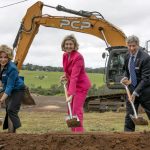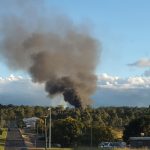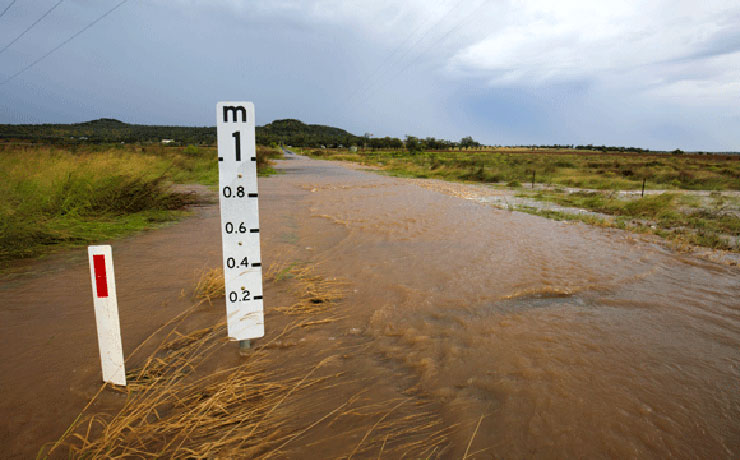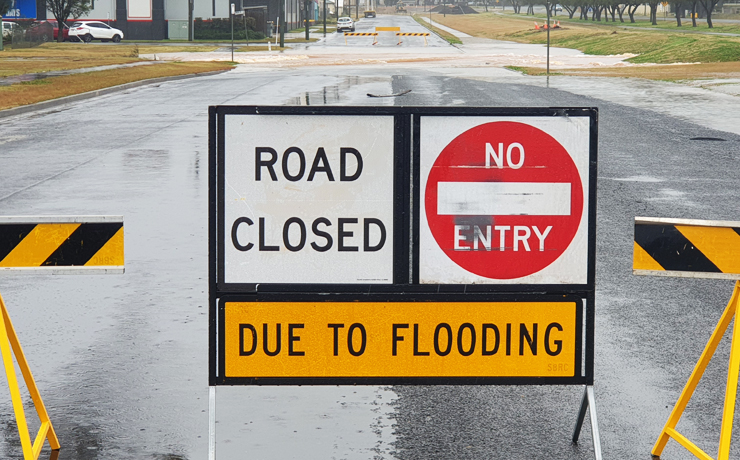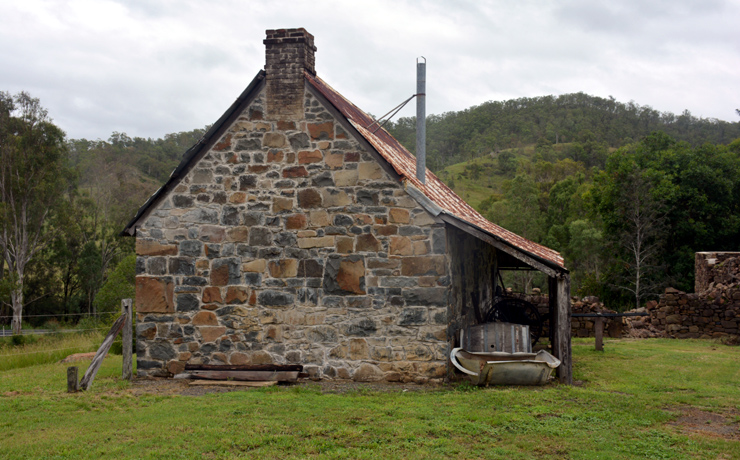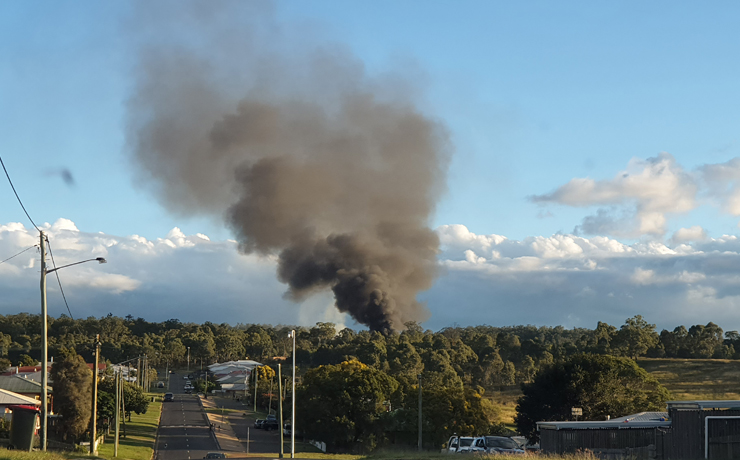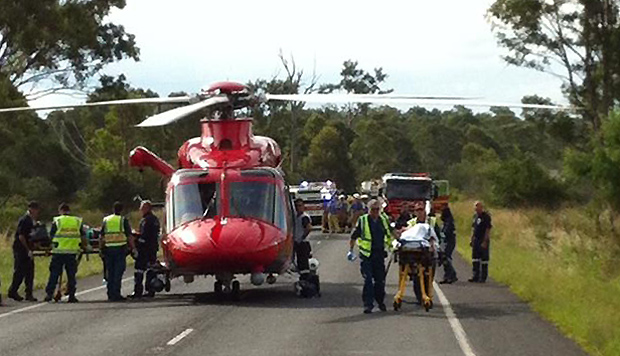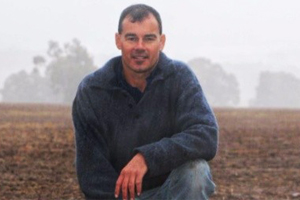August 18, 2016
UPDATE: The debate is finally over: LNP 41 no, ALP 41 yes, KAP 2 no, IND 1 no, IND 1 yes. Total 42 yes, 44 no. ALP legislation defeated.
* * *
Earlier on Thursday: The State Government’s attempt to tighten vegetation management laws in Queensland – roundly criticised by farmers, lawyers, AgForce and the LNP – looks to have failed.
Controversial Independent MP Billy Gordon, the Member for Cook and a former ALP MP, announced his intention late on Thursday to vote with the Opposition stating the legislation did not “strike the necessary balance between Indigenous economic development, protecting the environment and supporting our farmers”.
The two Katter’s Australian Party MPs in the Queensland Parliament also oppose the ALP proposal.
* * *

Deputy Opposition Leader and Member for Nanango Deb Frecklington roundly attacked the legislation from the floor of the House:
On preparing for this debate, I am feeling extremely disheartened that we are again debating the vegetation management legislation.
There are so many detrimental issues involved in this Bill but with the limited time that I have I will not be able to cover them all.
Just a few years ago, at the end of 2013, the LNP government, and significantly Minister (Andrew) Cripps, implemented the most significant reforms to vegetation management legislation after more than 20 years of onerous Big Brother legislation enforced by Beattie-Bligh Labor governments.
We wanted to boost food production and deliver jobs and economic benefits for all regional communities across Queensland. We wanted to support high-value agriculture projects and restore a long overdue balance to Queensland’s vegetation management framework.
Our laws did not – I say again – our laws did not allow for the reckless clearing of native vegetation in Queensland and they did not threaten the health of the Great Barrier Reef.
As Queenslanders, we all care deeply about our reef. The reef is one of Queensland’s greatest assets. It supports thousands of jobs and is vital to the economy of many towns and cities across the coastline. It is a Queensland icon. The LNP takes protection of our reef very seriously.
We did in government. That is why we introduced the toughest ever laws to protect the reef from environmental vandalism. That is why we ended the Bligh government’s plans to dredge 38 million cubic metres of material at Abbot Point port and to dispose of it in the Marine Park.
We put $8 million a year into the day-to-day operations of our reef. We conducted a strategic assessment of the Great Barrier Reef coastal zone, the largest ever for a natural system. We also developed the Reef 2050 Long-Term Sustainability Plan to guide the protection of our reef for the next 30-plus years.
It was the LNP government that invested millions in improving water quality including support for graziers and canegrowers to develop best farm management programs and adopt reef friendly practices. We also adopted a common-sense approach to land management for our primary producers, as we recognise our farmers are responsible stewards of our land.
We empowered them to get on with the job of growing our food and our fibre through sensible, workable laws. I note that the agriculture committee specifically commented on the negative impact that frequent changes to this legislation are having to landholders and the wider ag sector.
When this detrimental legislation was introduced, I was contacted by many, many people across my electorate. I would like to thank the Shadow Minister for Natural Resources, Andrew Cripps, and the deputy chair of the committee, Tony Perrett, for taking the time to travel the State and for taking the time to visit my region.
We held two vegetation management forums, in Toogoolawah and Kingaroy, where we had hundreds of people fill our local town hall to find out how they could help to stop Labor changing these laws. They took precious time away from their businesses to attend.
The introduction of these proposed changes came during my time as Shadow Minister for Agriculture, and I was pleased to accompany the member for Hinchinbrook to forums in Beaudesert and Gympie where the same concerns were raised.
There is a real air of desperation and a real feeling at every meeting we attended of ‘Why are Labor doing this to us again?’
It would have done the Deputy Premier some good to travel and listen directly to these people.
I note that the former candidate and mayor of Charleville, a Labor candidate, has taken the desperate step of writing to Country Life and having his letter printed: ‘Premier not looking or listening’.
I quote from this letter:
I am also very concerned that the iconic Great Barrier Reef is being mentioned in the same breath as the mulga lands. I hope this is not an intentional endeavour to link two very diverse and generally unrelated State assets.
I reiterate my plea to the Deputy Premier to take up my offer to come and have a look for herself at where she is being led astray.
The Deputy Premier would do herself a huge favour by allowing people who live in this area to educate her on the topic and not be hoodwinked by extremists.
I table that letter from the ALP member Mark O’Brien from Charleville.
[Tabled paper: Letter to the Editor, Queensland Country Life, dated August 18, 2016, titled ‘Premier not looking or listening’]
I would like to thank again everyone who attended those forums. In particular I thank people like Susan and Peter Mortimer, who had to travel to Emerald, and Narelle Black, who wrote to members of Parliament sharing her personal story and pleading for the laws not to change again.
I thank those who shared examples of their vegetation management records, which showed how their land will be impacted by new layers of colours, such as the proposed Category R areas and the new Category C areas. It is just incredible.
There are other examples, like the family from my electorate who bought extra land to extend their very successful blueberry orchard. The land was bought based on the premise it could be selectively cleared. They only need to clear about 20 to 30 trees so they could grow their business and produce more nutritious blueberries. However, these legislative changes have sparked an immediate concern, as they have so far made a half a million dollar investment in this new business.
Surely these are the types of projects we want for Queensland? To grow agriculture in our State and support primary producers whenever we can. The Labor Government must understand that these laws can and will stop this type of agricultural investment.
There are many negative and detrimental aspects of these legislative changes but, to be frank, the reverse onus of proof and the removal of the mistake of fact defence is unbelievable.
The committee clearly stated in Recommendation 3 that the reverse onus of proof in relation to vegetation clearing offences must be omitted.
We wonder why the member for South Brisbane has brought this Bill to the House without announcing that she has made this amendment. She has blatantly ignored members of her own party, and she has blatantly ignored groups like the Queensland Law Society, AgForce and the Local Government Association of Queensland. They all agree with the principle that a person is presumed innocent until they are proven guilty.
The member for South Brisbane simply wants to take rights away from our farmers and make them criminals on their own land.
I agree with the Queensland Law Society that, if this particular part of the Bill goes through, it will be a travesty of justice for Queensland’s landholders. It is an unjustified step backwards for our State.
The same applies for the removal of the mistake of fact defence.
I need to move on because it is important to highlight the changes Labor is proposing to the Environmental Offsets Act.
By their own admission, this Labor Government undertook no consultation in relation to these amendments, which will require offsets for any residual impact on prescribed environmental matters, rather than imposing offsets only on significant residual impacts.
What does this mean for housing, infrastructure, investment and development right here in South-East Queensland?
The Property Council of Australia and the UDIA submitted to the committee that if you are buying a home it could add an extra $197,000 to the cost of your home … and this is why. By simply removing the term ‘significant’, the proposed amendment means every impact will be considered and therefore it will obviously increase the compliance costs.
It is doing nothing to save the environment or the Great Barrier Reef. It is just simply creating more paperwork, red tape and lengthy delays. For example, if a developer has to make a very minor impact, such as the removal of just one tree, it will trigger a requirement for an offset. This will surely require many more government resources to deal with an increase in applications.
I simply do not think the Deputy Premier has thought this section through. She could not have because she did not offer any groups the opportunity to comment prior to these changes being introduced to Parliament. If they had have consulted, it would have been highlighted that land identified for urban development has already been through comprehensive planning processes, with the urban development ultimately identified as the best use of land.
These changes adversely affect investment in the development industry and housing affordability. This is going to hurt not only the hip pocket of our young families but all families who are trying to purchase a home. It could perhaps even put their dreams completely out of reach.
I note the committee’s Recommendation 4 which asks the Department of Environment and Heritage Protection to engage with the property, resources and development sectors to assess and establish the full impact of the proposed amendments to the environmental offsets regime in Queensland.
I also note Recommendation 5 which asks the Minister to inform the House of the outcome of this engagement, including any potential costs and if any actions will be taken.
Sadly, the horse really has been put before the cart here. Labor has seen the opportunity and slipped this change in hoping no one would notice.
We have noticed and we call the Deputy Premier out on these underhanded changes.
The new laws will also amend the Commonwealth offset conditions, and this has raised eyebrows. The Property Council of Australia, the UDIA and the Queensland Resources Council have all expressed concerns. The UDIA said the amendments would allow the State Government to double-dip on environmental offset requirements, leading to added complexity, uncertainty and significant costs to the delivery of new communities.
What are the Labor government trying to do? Are they trying to make it so hard for new infrastructure and new development projects to get up? Are they trying to make it impossible for young people to buy their first home? Are they really trying their hardest to stifle growth in South-East Queensland?
Altogether, we are just debating very bad amendments to legislation which does not need to change. Our farmers and our developers have been demonised and this must stop.
The LNP supports balanced and sensible vegetation management laws for Queensland that provide strong and appropriate environmental protections while respecting the commitment of our farming families to their land and the need for investment and development in this State.
On their behalf, I wholeheartedly do not support this Bill.
Related articles:
- Lawyers Blast ‘Unjust’ Land Clearing Laws
- MP Blasts ‘Unfair’ Tree Laws
- Labor ‘Not Listening’ On Tree Laws
- Reverse Onus Of Proof Scrapped
- Farmers Angered By Green Laws
- MPs To Host Forum On Green Laws
- MP Urges Farmers To Speak Out
- Deb’s Diary – Tree Law Amendments ‘Devastating For Farmers’
- State Govt To Reinstate Vegetation Management Laws
- LNP Vegetation Laws To Stay








